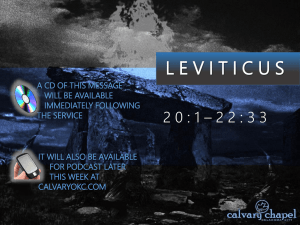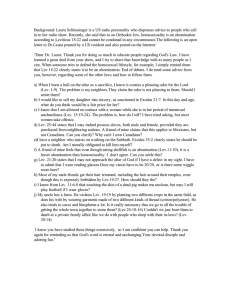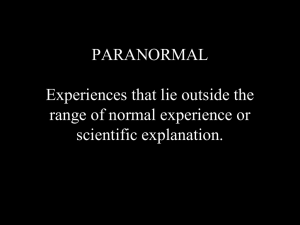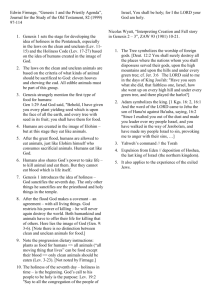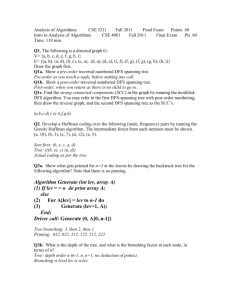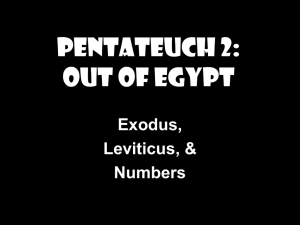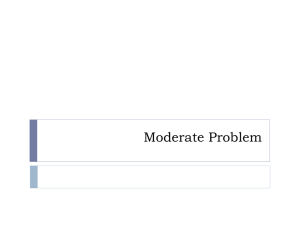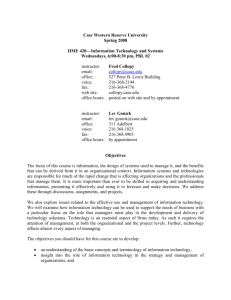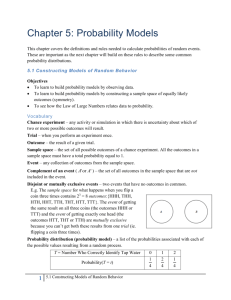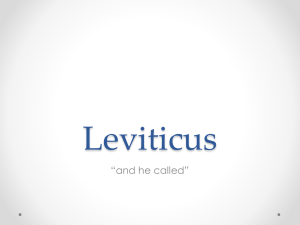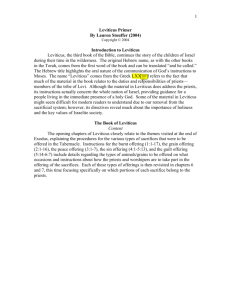Some Guides for Leviticus, Numbers and Deuteronomy 1
advertisement
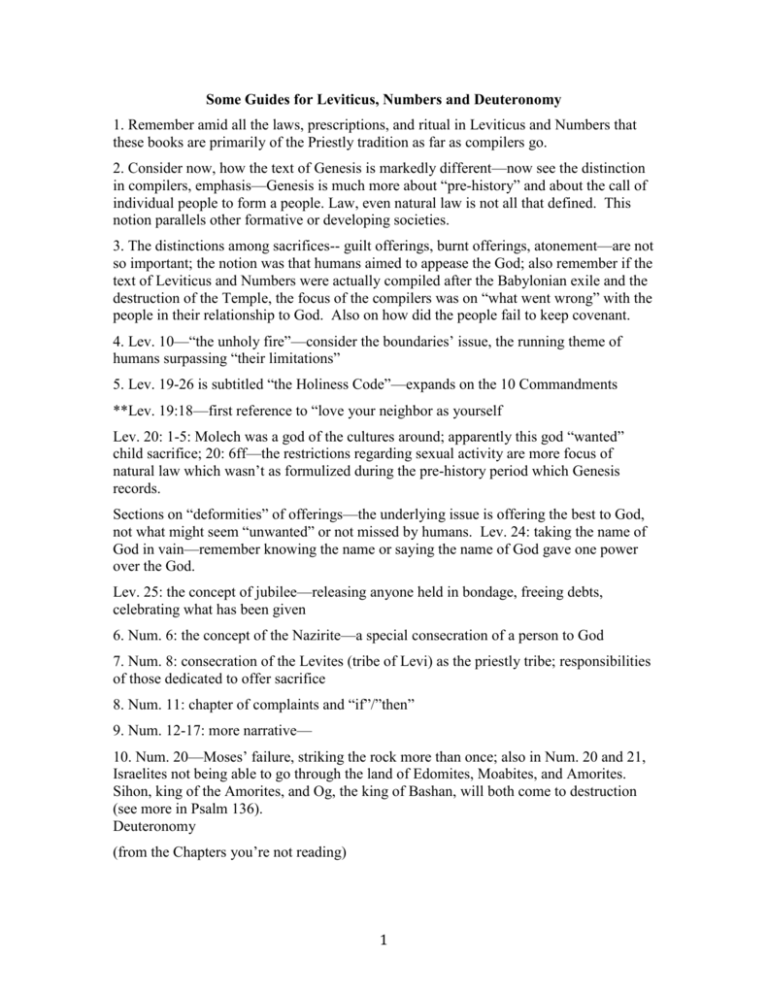
Some Guides for Leviticus, Numbers and Deuteronomy 1. Remember amid all the laws, prescriptions, and ritual in Leviticus and Numbers that these books are primarily of the Priestly tradition as far as compilers go. 2. Consider now, how the text of Genesis is markedly different—now see the distinction in compilers, emphasis—Genesis is much more about “pre-history” and about the call of individual people to form a people. Law, even natural law is not all that defined. This notion parallels other formative or developing societies. 3. The distinctions among sacrifices-- guilt offerings, burnt offerings, atonement—are not so important; the notion was that humans aimed to appease the God; also remember if the text of Leviticus and Numbers were actually compiled after the Babylonian exile and the destruction of the Temple, the focus of the compilers was on “what went wrong” with the people in their relationship to God. Also on how did the people fail to keep covenant. 4. Lev. 10—“the unholy fire”—consider the boundaries’ issue, the running theme of humans surpassing “their limitations” 5. Lev. 19-26 is subtitled “the Holiness Code”—expands on the 10 Commandments **Lev. 19:18—first reference to “love your neighbor as yourself Lev. 20: 1-5: Molech was a god of the cultures around; apparently this god “wanted” child sacrifice; 20: 6ff—the restrictions regarding sexual activity are more focus of natural law which wasn’t as formulized during the pre-history period which Genesis records. Sections on “deformities” of offerings—the underlying issue is offering the best to God, not what might seem “unwanted” or not missed by humans. Lev. 24: taking the name of God in vain—remember knowing the name or saying the name of God gave one power over the God. Lev. 25: the concept of jubilee—releasing anyone held in bondage, freeing debts, celebrating what has been given 6. Num. 6: the concept of the Nazirite—a special consecration of a person to God 7. Num. 8: consecration of the Levites (tribe of Levi) as the priestly tribe; responsibilities of those dedicated to offer sacrifice 8. Num. 11: chapter of complaints and “if”/”then” 9. Num. 12-17: more narrative— 10. Num. 20—Moses’ failure, striking the rock more than once; also in Num. 20 and 21, Israelites not being able to go through the land of Edomites, Moabites, and Amorites. Sihon, king of the Amorites, and Og, the king of Bashan, will both come to destruction (see more in Psalm 136). Deuteronomy (from the Chapters you’re not reading) 1 Deut. 14 is clearly in the Priestly tradition; 14.22 brings in the notion of the “tithe”—a portion given to God from the harvest. Ch. 15 has reference to the sacredness of the 7th year—so in this year debts are remitted; slaves are freed in the 7th year; 15:7 is another of the reminders: “you were a slave in the land of Egypt” Ch. 16 is about celebrating Passover; 16:18 speaks of the appointing of judges Ch. 17 verses 2-4 address the concept of syncretism; vs. 6 talks about the evidence of more than one witness; 17: 14-20 is about the appointment of a king Chs. 21-24 deal with a range of laws; note Ch. 23:21-23 emphasizes the importance of keeping a vow (foreshadows the problem for Jephthah Ch. 26:5 A wandering Aramean was my father…notion of being “outsiders” Chs. 27 and 28 “the curses” what will happen if Israel doesn’t obey; Ch. 28 is an extensive “If/then” series 2
